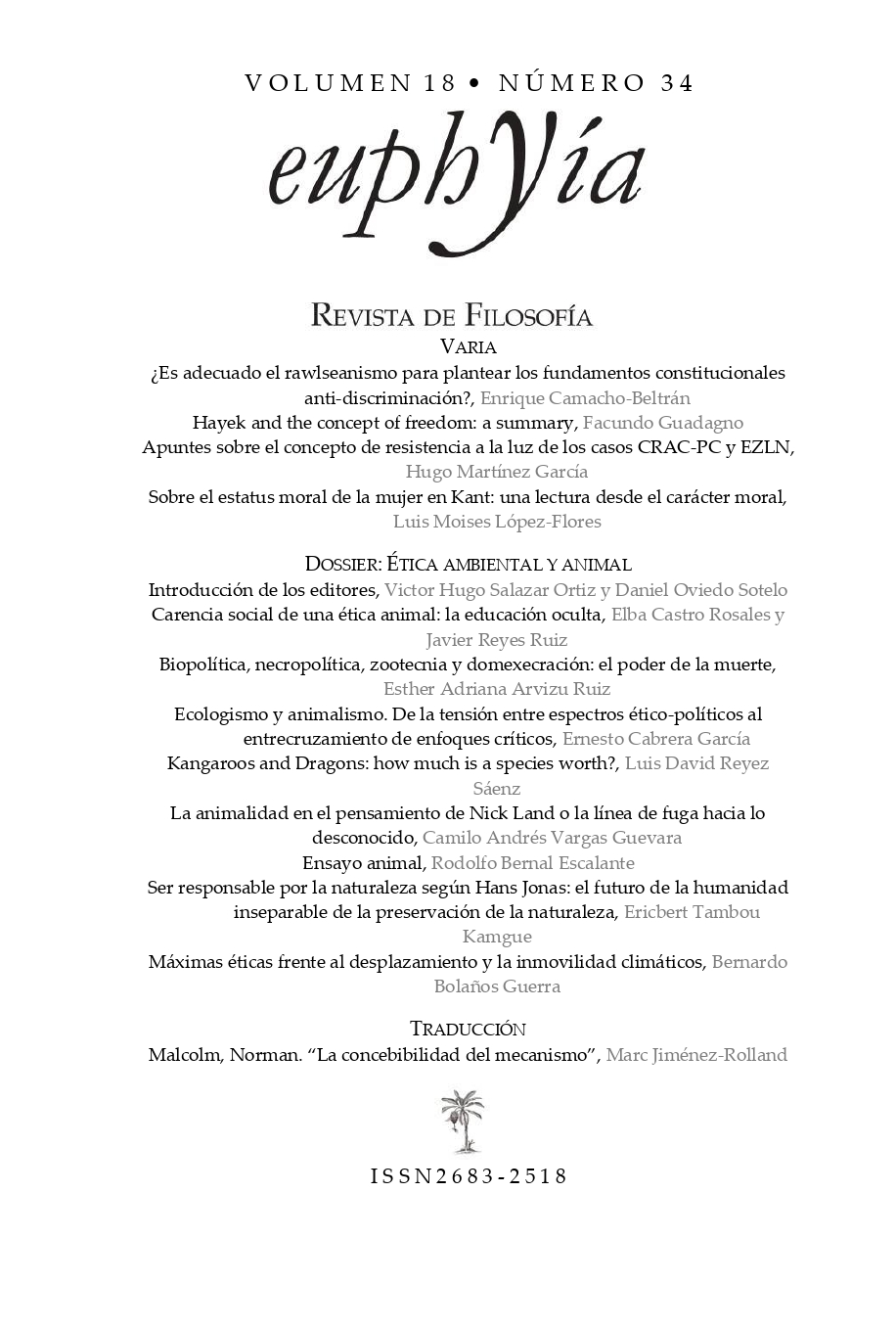Ethical maxims in the face of climate displacement and immobility
DOI:
https://doi.org/10.33064/34euph7541Abstract
Human displacement caused by climate change poses complex ethical challenges that require evidence-based and justice-oriented responses. This article proposes an ethical framework composed of normative maxims designed to address climate migration from an interdisciplinary perspective, integrating data from environmental sciences and ethical principles. Drawing on representative cases in Mexico, Central America, and the Indian subcontinent (such as forced displacement due to drought, rising sea levels, atypical hurricanes, and the loss of community resilience to climate disasters), the text highlights the multifactorial nature of these processes and the need for rigorous explanations that connect global warming with concurrent phenomena such as violence from organized crime. Finally, six ethical maxims are presented, including the protection of local socio-ecosystems, the proportionality of preventive efforts, the sustainability of proposed solutions, the role of technological innovation, responsible communication about the climate crisis, and the co-responsibility of all citizens of the planet. This work seeks to contribute to an applied ethics that allows us to face the challenges of human mobility in a context of global environmental crisis.
Downloads
Metrics

Downloads
Published
How to Cite
Issue
Section
License

This work is licensed under a Creative Commons Attribution-NonCommercial-NoDerivatives 4.0 International License.

Este obra está bajo una licencia de Creative Commons Reconocimiento-NoComercial-SinObraDerivada 4.0 Internacional.













